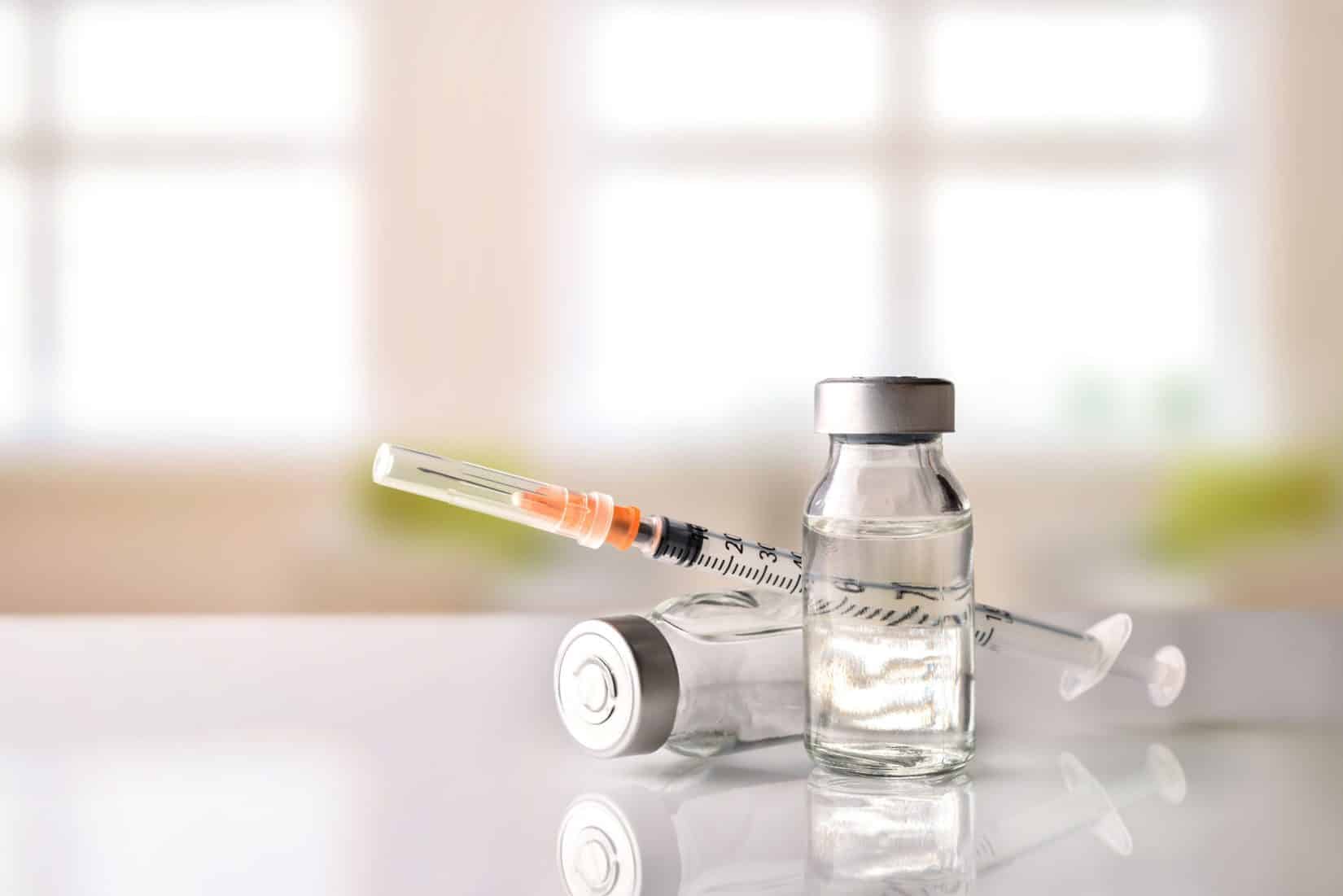Weight loss injections: A Comprehensive Guide to Injectable Medication for weight management have published today date in healthline.com. The purpose of this article is to provide readers with comprehensive information about weight loss injections, including the different types of injections available, how they work, and their effectiveness. This information can help readers make informed decisions about whether or not weight loss injections are right for them.
Editor's Notes: Weight Loss Injections: A Comprehensive Guide To Injectable Medication For Weight Management." This topic is important to read because obesity is a major public health problem.
Our team spend countless hours doing some analysis, digging information, made Weight Loss Injections: A Comprehensive Guide To Injectable Medication For Weight Management we put together this Weight Loss Injections: A Comprehensive Guide To Injectable Medication For Weight Management guide to help target audience make the right decision.
Key differences or Key takeways
| Injectable | |||
|---|---|---|---|
| GLP-1 agonists | Moderate to high | Nausea, vomiting, diarrhea, constipation, abdominal pain | $1,000 to $3,000 per month |
| PYY agonists | Increase PYY levels, which reduces appetite and increases satiety. | Moderate | $1,000 to $2,000 per month |
| Block the effects of CGRP, which is a neuropeptide that stimulates appetite. | Low to moderate | Headache, dizziness, fatigue, nausea | $500 to $1,500 per month |
FAQ
This comprehensive guide explores the efficacy and safety of weight loss injections, addressing common queries and concerns.

Weight Loss Injections | McLean & Potomac Dermatology - Source www.mcleanskin.com
Question 1: Are weight loss injections safe and effective?
Weight loss injections are approved by regulatory authorities and have an extensive track record of safe and effective use. Clinical studies demonstrate their ability to promote significant weight loss and improve metabolic parameters.
Question 2: What are the different types of weight loss injections?
There are several types of weight loss injections, each targeting distinct mechanisms of weight regulation. Some injections suppress appetite, while others enhance metabolism or block fat absorption. The specific type prescribed depends on individual circumstances and response to treatment.
Question 3: Are there any side effects associated with weight loss injections?
Like all medications, weight loss injections may have potential side effects, but the frequency and severity vary among individuals. Common side effects include nausea, vomiting, constipation, and diarrhea. However, these effects are usually manageable and tend to subside over time.
Question 4: How long do weight loss injections take to work?
Weight loss injections typically begin to show effects within a few days to weeks. However, the full extent of weight loss may take several months to achieve. Regular use and adherence to the prescribed regimen are crucial for optimal results.
Question 5: Are weight loss injections a long-term solution?
Weight loss injections can be effective as a long-term solution if used in conjunction with lifestyle changes that promote healthy eating and physical activity. However, it is important to consult with a healthcare professional to determine the most appropriate long-term weight management strategy.
Question 6: How much weight can I lose with weight loss injections?
The amount of weight lost with weight loss injections varies depending on individual factors such as starting weight, adherence to the treatment plan, and dietary and exercise habits. On average, individuals can lose 5-15% of their body weight within the first year of using weight loss injections.
In summary, weight loss injections offer a viable option for individuals struggling to lose weight through traditional methods. They are safe and effective when used under medical supervision and can promote significant weight loss. However, it is crucial to be aware of potential side effects and to explore the different types of injections available to make informed decisions about weight management.
For further information and to determine if weight loss injections are right for you, consult with a healthcare professional specializing in weight management.
Tips
For more insight about this, Weight Loss Injections: A Comprehensive Guide To Injectable Medication For Weight Management provides detailed information on injectable weight loss medications and their usage.
Tip 1: Consult a Healthcare Professional
It is essential to schedule an appointment with a board-certified physician or healthcare provider specializing in weight management. They can assess your health history, weight loss goals, and any underlying medical conditions that may affect your eligibility for weight loss injections.
Tip 2: Lifestyle Modification
Weight loss injections are often combined with lifestyle modifications, such as adopting a balanced diet, participating in regular physical activity, and engaging in stress management techniques. These lifestyle changes enhance the effectiveness of injections and promote long-term weight management success.
Tip 3: Follow Prescribed Dosage and Frequency
Adhering to the prescribed dosage and frequency of injections is crucial. Weight loss injections are typically administered once a week, every other week, or once a month, depending on the medication. Missing doses or taking incorrect amounts can diminish the effectiveness of treatment.
Tip 4: Monitor Side Effects
While weight loss injections are generally well-tolerated, some potential side effects may include nausea, constipation, diarrhea, and injection site reactions. It is important to monitor these side effects closely and consult a healthcare professional if they become severe or persistent.
Tip 5: Seek Continuous Support
Engaging with a support system, such as a therapist, support group, or family and friends who are aware of your weight loss journey, can provide encouragement and accountability. Ongoing support helps maintain motivation and facilitates long-term success.
Summary
Weight loss injections can be an effective tool for weight management when used appropriately. By adhering to these tips and collaborating with a healthcare professional, individuals can maximize the benefits and achieve their desired weight loss goals.
Weight Loss Injections: A Comprehensive Guide To Injectable Medication For Weight Management
Weight loss injections are increasingly gaining popularity as a means of managing weight. These medications work by modulating the body's natural processes, enhancing energy metabolism, controlling hunger, and aiding in fat loss. This comprehensive guide aims to provide a deep understanding of the key aspects of weight loss injections, encompassing types, mechanisms, indications, contraindications, and potential outcomes.

Buy TriMix Injections Online | How to Buy ED Injections | Olympia Pharmacy - Source www.olympiapharmacy.com
- Types: Liraglutide, Semaglutide, Tirzepatide.
- Mechanisms: Mimic GLP-1, inhibit gastric emptying, reduce hunger.
- Indications: Obesity, weight management, blood sugar control.
- Contraindications: Pancreatitis, medullary thyroid cancer, severe kidney disease.
- Outcomes: Reduced appetite, increased metabolic rate, improved insulin sensitivity.
- Side Effects: Nausea, vomiting, diarrhea, constipation.
It's important to consult a healthcare provider to determine if weight loss injections are suitable for you and to closely monitor your progress. In conjunction with a healthy diet and exercise, weight loss injections can be a valuable tool in managing weight and improving overall well-being.

Tirzepatide for Weight Loss, Manjaro injections - Renew Vitality - Source www.vitalityhrt.com
Weight Loss Injections: A Comprehensive Guide To Injectable Medication For Weight Management
Weight loss injections have emerged as a cutting-edge approach to weight management, offering a multifaceted strategy to combat obesity. These injectable medications work by targeting specific biological pathways involved in appetite regulation, metabolism, and energy expenditure. They have demonstrated remarkable efficacy in promoting significant weight loss and improving overall health outcomes.

Novel Injectable GLP-1 Weight Loss Medication Tirzepatide Sugar Control - Source es.made-in-china.com
The key connection between weight loss injections and successful weight management lies in their ability to address the underlying physiological factors contributing to obesity. By modulating hormones and neurotransmitters, these injections can effectively suppress appetite, enhance satiety, and increase metabolic rate. They also play a crucial role in regulating blood glucose levels, improving insulin sensitivity, and reducing inflammation, all of which are essential for long-term weight loss maintenance.
Real-life examples underscore the transformative impact of weight loss injections. Individuals who have struggled with traditional weight loss methods often find success with these innovative therapies. By tailoring the dosage and type of injection to the patient's specific needs, healthcare professionals can optimize treatment outcomes, leading to substantial weight reduction and improved quality of life.
Understanding the connection between weight loss injections and weight management is crucial for informed decision-making. Patients considering these therapies should consult with their healthcare provider to discuss the potential benefits, risks, and candidacy. By leveraging the power of injectable medications, individuals can embark on a comprehensive weight loss journey, achieving lasting results and reclaiming their health.
Table: Key Points
| Concept | Explanation |
|---|---|
| Biological Pathways | Weight loss injections target specific hormones and neurotransmitters involved in appetite regulation, metabolism, and energy expenditure. |
| Appetite Suppression | These injections effectively suppress appetite, reducing food intake and promoting calorie reduction. |
| Metabolic Enhancement | They increase metabolic rate, boosting calorie expenditure and facilitating weight loss. |
| Hormonal Regulation | Weight loss injections modulate hormones like insulin, leptin, and ghrelin, improving glucose control and reducing hunger signals. |
| Efficacy and Safety | Clinical studies have demonstrated the efficacy and safety of weight loss injections in promoting significant weight loss and improving overall health. |
Conclusion
Weight loss injections have revolutionized the field of weight management, offering a powerful tool to combat obesity and improve overall health. By targeting key biological pathways, these injectable medications effectively suppress appetite, enhance metabolism, and regulate hormones, leading to significant weight loss and improved quality of life.
The future of weight loss injections holds promise for even more personalized and effective therapies. Ongoing research is exploring novel formulations and delivery systems to optimize treatment outcomes and minimize side effects. As the understanding of obesity and its underlying mechanisms deepens, weight loss injections will continue to play a pivotal role in the fight against this global health challenge.